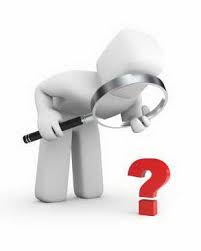
“Walk through the door and you’ll know you are in the right place.” – R. Levitz
The question stopped me in my tracks. In response to an article, On the Meaning of Meaning, by Seph Fontane Pennock, I wrote to Seph, sending him a saying by Tal Ben-Shahar that I liked, namely, that happiness lies at the intersection of pleasure and meaning. Seph immediately fired back a question: “What is meaningful – to you?” Thankfully, he narrowed it down to my personal viewpoint, but I as I formulated one answer after another in my head, I realized I had no ready response. Weeks went by, and the question continued to nag at me. How can I write, teach, or urge people to pursue meaning, when I can’t put my definitive finger on what it even is? I use the word all the time, and I can write pages about it, but I couldn’t find that one pithy Zen-like line that would sum it all up.
Man’s Search for Meaning
Viktor Frankl is known for opening the eyes of modern psychology to the concept that the essence of man lies in his search for meaning. And so, if this is my true essence, my fundamental nature as a human being, how can I be so dense? Why is this so hard to nail down? Our Founding Fathers guaranteed us the right to the “pursuit of happiness.” No guarantees, of course, and as we well know, even when we attain “happiness,” it is transient, and off we go on the chase ad infinitum. Sustained happiness, on the other hand, is not derived solely from pleasure and positive emotions, but has another essential ingredient: meaningfulness. Maybe, as the title of Viktor Frank’s famous book would suggest, it is the very search for meaning – that is meaningful. Perhaps it is simply the process of being open to seeing and experiencing the possibility of meaning that is offered to each of us moment-by-moment, right here, right now.
Inch Deep Versus a Mile Wide
Nitzavim, or Nitzavim/Vayeilech when it’s a double Torah reading, occurs on the last day of Moses’ life. The stakes couldn’t be higher, the words truer, the plea more from the heart. We also read these Torah portions right before Rosh Hashanah, the Day of Judgment, where we pray to be inscribed in the Book of Life for the coming year. The Days of Awe are sobering and naturally, our thoughts run to the lofty side; we want to grow and change and be better, do better. It’s also a time of year for emotional hyperbole. We beat ourselves up for being sinning miscreants and promise to be righteous and praiseworthy from now on. You don’t have to take my advice, but I suggest that you go small, and take it moment by moment. For in looking for the grand gesture, you may miss the opportunity right in front of you, missing both the forest and the trees.
In Nitzavim, the last day of Moses’ life, Moses tells the Jewish people that Torah is neither far away and foreign, nor unobtainable and unnatural.
“It is not hidden from you and it is not distance. It is not in heaven, [for you] to say, ‘Who can ascend to the heaven for us and take it for us, so that we can listen to it and perform it? Nor is it across the sea [for you] to say, ‘Who can cross to the other side of the sea for us and take it for us, so that we can listen to it and perform it?’ Rather, the matter is very near to you – in your mouth and your heart – to perform it.”
How many times have I read these few lines without understanding the huge lesson they contain? We don’t even have to look outside of ourselves – we are hard-wired for holiness and meaning. It’s our natural state of being. Perhaps that is why Torah is compared to water and Abraham, Isaac, and Miriam were well diggers. Futilely, we try to quench our thirst with exotic waters, ignoring the wellspring within.
And so perhaps, ultimately, the search for meaning is who you are as you face whatever the next moment has to offer. Moses is telling us that our authentic self is our godly nature and that we naturally yearn to express our core essence in our words and deeds.
Recently, I joined a Meet Up group that hosts musical gatherings in people’s homes. On the evite, along with the address, were the directions: Walk through the door and you’ll know you are in the right place. In other words, in case you are not sure which house is his, if you open the door and hear the sound of music, you have found what you are looking for. We know the right thing to do; we really do, but in over thinking it, or knocking on the wrong door, we lose touch with our essence and contort ourselves to justify doing whatever we want to do.
Peeling the Layers
As the saying goes, “less” is “more;” and so the less inauthentic we are, the more godliness we can reveal. Thus, our lives become meaningful as the natural consequence of meeting the moment with our best selves. We are said to be “thirsty souls,” and so may we satisfy our thirst from the well of Torah that runs deep within, and may the magic and meaning of the moment unfold and reveal itself to us.
References:
Devarim/Deuteronomy 30:11-15.